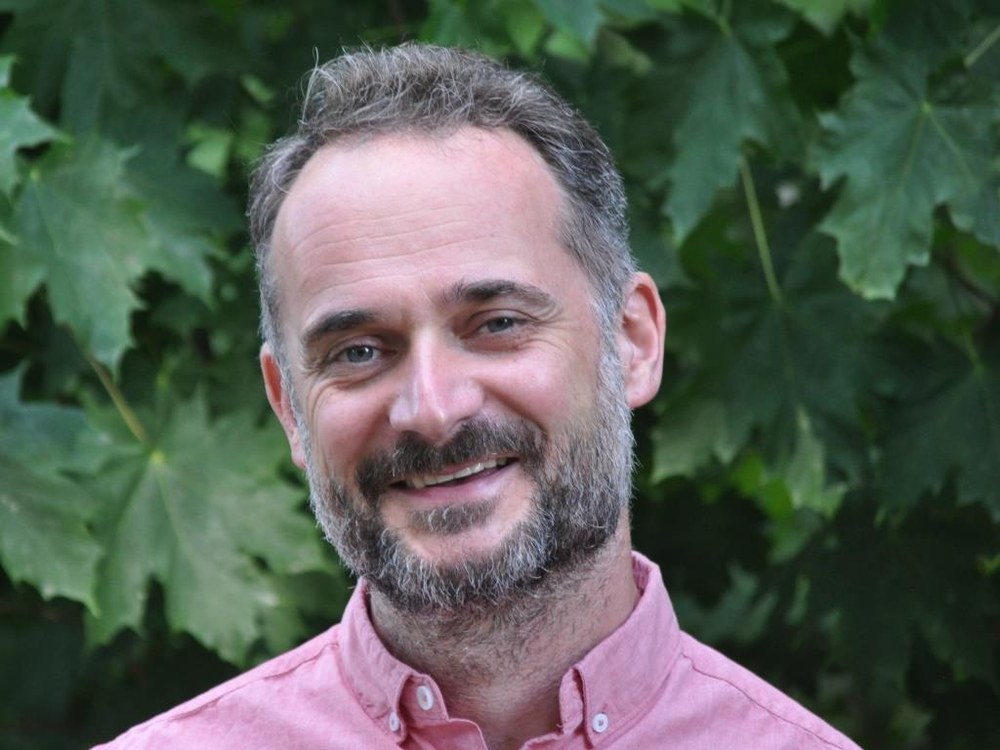Professor of Biology, University of the South

David George Haskell
David Haskell's work integrates scientific, literary, and contemplative studies of the natural world. His latest book, The Songs of Trees: Stories from Nature's Great Connectors (Viking, 2017), examines the many ways that trees and humans are connected. The book was winner of the 2018 John Burroughs Medal, named one of the Best Science Books of 2017 by NPR's Science Friday, selected as Favorite Science Books of 2017 by Brain Pickings, and in the 10 Best Environment, Climate Science and Conservation Books of 2017 at Forbes.com. Deborah Blum, Pulitzer winner, author of The Poisoner's Handbook, and director of the Knight Science Journalism program at MIT, says of The Songs of Trees, "David George Haskell may be the finest literary nature writer working today. The Songs of Trees--compelling, lyrical, wise--is a case in point."
His first book, The Forest Unseen: A Year's Watch in Nature (Viking, 2012), was winner of the National Academies' Best Book Award for 2013, finalist for the 2013 Pulitzer Prize in nonfiction, winner of the 2013 Reed Environmental Writing Award, winner of the 2012 National Outdoor Book Award for Natural History Literature, runner-up for the 2013 PEN E.O. Wilson Literary Science Writing Award, and winner, in its Chinese translation, of the 2016 Dapeng Nature Writing Award. A profile by James Gorman in The New York Times said of Haskell that he "thinks like a biologist, writes like a poet, and gives the natural world the kind of open-minded attention one expects from a Zen monk rather than a hypothesis-driven scientist." E.O. Wilson wrote that The Forest Unseen was "a new genre of nature writing, located between science and poetry." The Forest Unseen has been translated into a dozen languages.
Haskell has also written about the biology of climate change and same-sex marriage for The New York Times.
Haskell holds degrees from the University of Oxford (BA) and from Cornell University (PhD). He is Professor of Biology and Environmental Studies at the University of the South, where he served as Chair of Biology. He is a 2014-2015 Fellow of the John Simon Guggenheim Memorial Foundation, a Fellow of the American Council of Learned Societies, and an Elective Member of the American Ornithologists' Union. His scientific research on animal ecology, evolution, and conservation has been sponsored by the National Science Foundation, the Environmental Protection Agency, the Fish and Wildlife Service, the World Wildlife Fund, among others. He serves on the boards and advisory committees of local and national land conservation groups.
Haskell's classes have received national attention for the innovative ways they combine action in the community with contemplative practice. In 2009, the Carnegie and CASE Foundations named him Professor of the Year for Tennessee, an award given to college professors who have achieved national distinction and whose work shows "extraordinary dedication to undergraduate teaching." The Oxford American featured him in 2011 as one of the southern US's most creative teachers. His teaching has been profiled in USA Today, The Tennesseean, and other newspapers.
James C. Finley Center for Private Forests
Address
416 Forest Resources BuildingUniversity Park, PA 16802
- Email PrivateForests@psu.edu
- Office 814-863-0401
- Fax 814-865-6275
James C. Finley Center for Private Forests
Address
416 Forest Resources BuildingUniversity Park, PA 16802
- Email PrivateForests@psu.edu
- Office 814-863-0401
- Fax 814-865-6275

